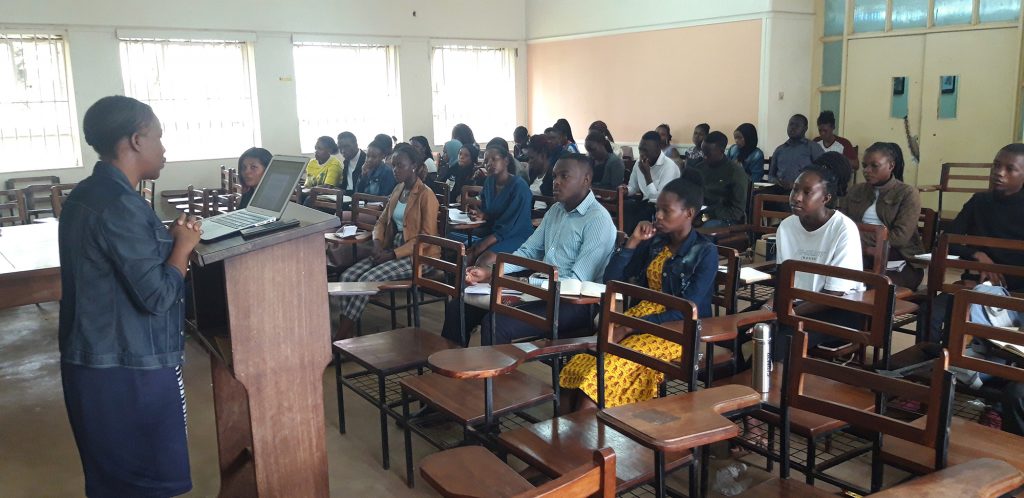JMIC trains 45 Ugandan journalism students in safety and security – Unsafe journalists cannot tell good stories.
By Gerald Walulya, JMIC coordinator – Uganda
Digital and physical security was put on the agenda when 45 final year journalism students and early career journalists participated in safety training in Uganda in early April.
Department of Journalism and Communication, Makerere University, Uganda, in cooperation with JMIC, conducted a four-day workshop on safety and security of journalists 3 rd- to 6 th April, 2023.

While speaking at the beginning of the training, Dr. Nakiwala Aisha Sembatya, the Head of Department of Journalism and Communication highlighted the importance of the workshop noting that such training is crucial for young journalists, because it enables them to know what to do when they are faced with safety and security threats. She commended JMIC for its continued support towards the Department that has enabled them to prepare their students well.
Journalists in Uganda face serious threats that range from intimidation, physical and psychosocial harassment, arrest and detention on a nearly daily basis. Journalists are regularly targeted by state actors such as security services, who include the army and the police and non-state actors such as mobs, politicians and powerful business people whose enterprises may be threatened by the journalists’ critical reporting.
The workshop was facilitated by local and international facilitators. Local facilitators included, Dr. Sara Namusoga, a Lecturer at the Department of Journalism and Communication, Culton Scovia Nakamya, a local Television journalist and Dr. Aisha Nakiwala. The local trainers were supported by Abeer Saady, a recognised safety trainer associated with Journalism & Media International Center.
Dr. Sara Namusoga told participants that journalists should be aware of their safety digitally and physically, because unsafe journalists cannot tell good stories.
Namusoga advised participants to always backup their data, avoid opening emails from untrusted sources, distancing themselves from usage of public Wi-Fi, noting that doing so exposes their accounts to hackers.
Abeer Saady took participants through a number of issues related to safety and security including, risk management and safety planning while working in hostile environments, situational awareness and ethical dilemmas related to safety and security.
Dorcus Nzayisenga, one of the participants applauded the trainers for making the sessions engaging. “The sessions were very educative and above all interactive which gives us students a chance to express our views. The facilitators were audible and made use of their personal experience, for proper understanding.”
Another participant, Moreen Atwiine said that she has learnt a lot from the training. “As a journalist l have become more aware about the threats l can face while doing my work and also the mechanisms to manage these threats.” She pledged to share the knowledge she has
acquired with fellow journalists. “ I will educate fellow journalist who didn’t get the chance to attend the workshop about their safety. I will also start practicing the tips about my safety and security as a journalist that I have learnt.”
